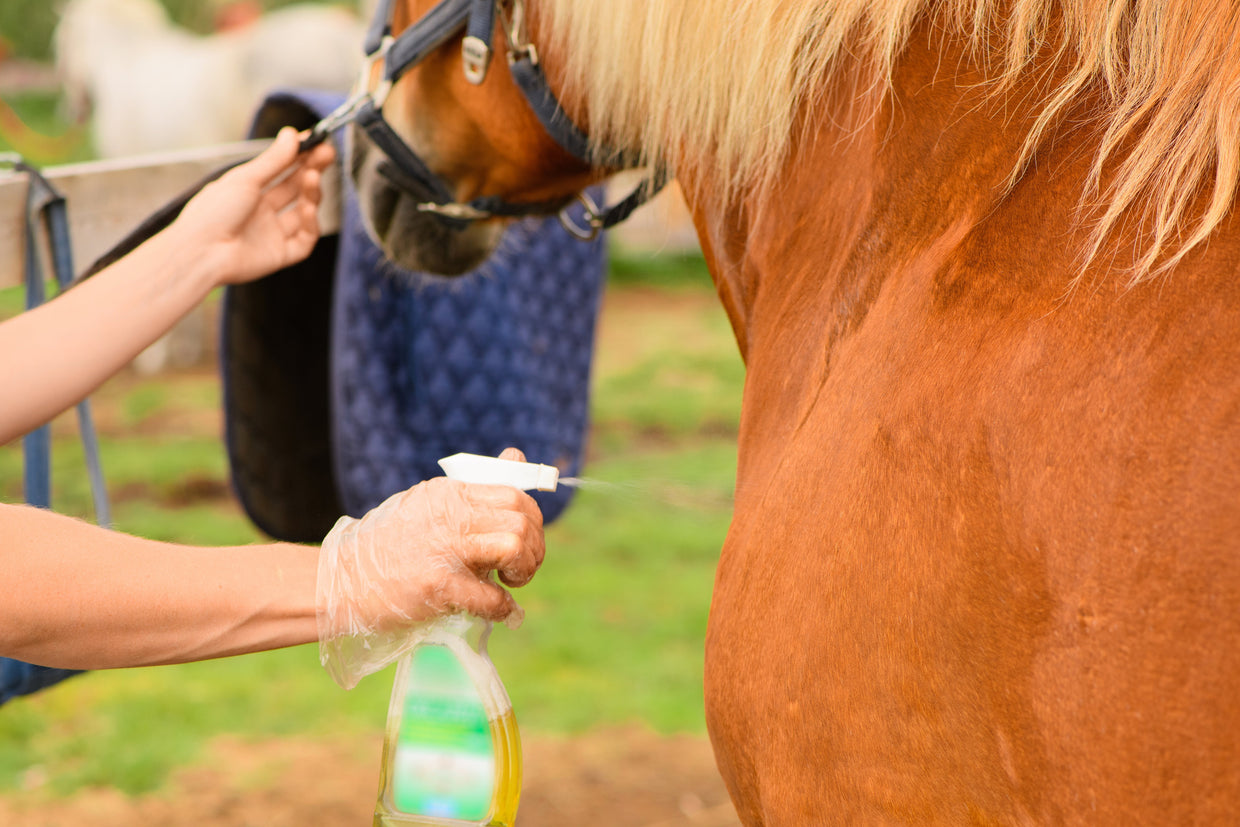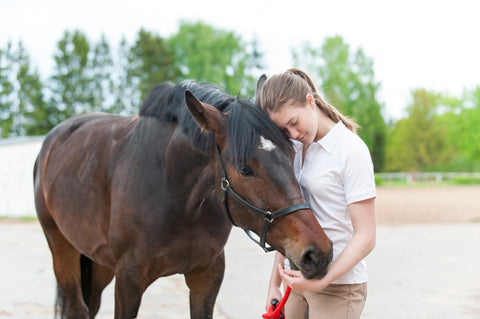

How to protect your horse from ticks
With summer on the way, it’s important to be aware of ticks. These pesky pests can latch onto our beloved horses, and will feed for a good few days before falling off.
Ticks can carry a multitude of diseases – like Lyme Disease and Tickborne Fever – that can be transferred to their hosts with a single bite. Although not every tick necessarily carries or will transfer disease, it’s best to be vigilant to protect our four-legged companions. So how can you help protect your horse from ticks? Let’s find out…
What are ticks?
Ticks are small, blood-sucking parasites, reddish-brown or black in colour, that feed on the blood of mammals – including horses. They can’t jump or fly, and usually lurk in shrubs and tall grass as they wait for a host. As the horse brushes past the flora, the tick quickly attaches itself using tiny hooks on its legs.
How to spot a tick
It’s important to keep an eye out for any obvious tell-tale signs of a tick bite, such as swelling or a skin infection. While grooming or handling your horse, take the time to feel for any ticks – especially around the head, ears, mane and tail. Make sure you check under the tail, too! Plus, look out for any changes in your horse's body language, as this could be a sign that something’s wrong.

How to remove a tick
Not every tick carries disease, but the longer the tick is left, the larger the likelihood of infection. Follow these steps for simple tick removal:- Choose the most suitable tool (depending on the size of the tick).
- Using the tool, hold the tick securely in place.
- Lift gently and twist. The tick should detach after a couple of small rotations.
- Disinfect the area and wash your hands with soap and water.
- Monitor the animal for any signs of infection – like a temperature, weariness or loss of appetite.
Just so you know, the bite site may appear red and swollen within the first days of tick removal – reach out to your vet if you’re concerned. It’s worth noting that common tricks for removing ticks – like the use of Vaseline, alcohol, or burning – are likely to agitate the tick, causing it to regurgitate its stomach contents, increasing the chance of infection.
Remember, you should only remove a tick if you feel confident in doing so. Otherwise, it’s best to consult your vet!

How to prevent ticks
There’s no sure-fire way to prevent tick bites in horses, but here are a few tips to help avoid them:- Reduce the number of ‘tick-friendly’ surroundings that your horse visits – this also means maintaining their pastures and cutting back overhanging trees.
- Keep animals that are prone to carrying ticks – like deer and sheep – out of your paddocks. Or, consider introducing tick predators to your property. Chickens love to eat ticks and act as a natural deterrent.
- Try tick and fly sprays with Permethrin on the label, as this is the most effective tick repellent.



